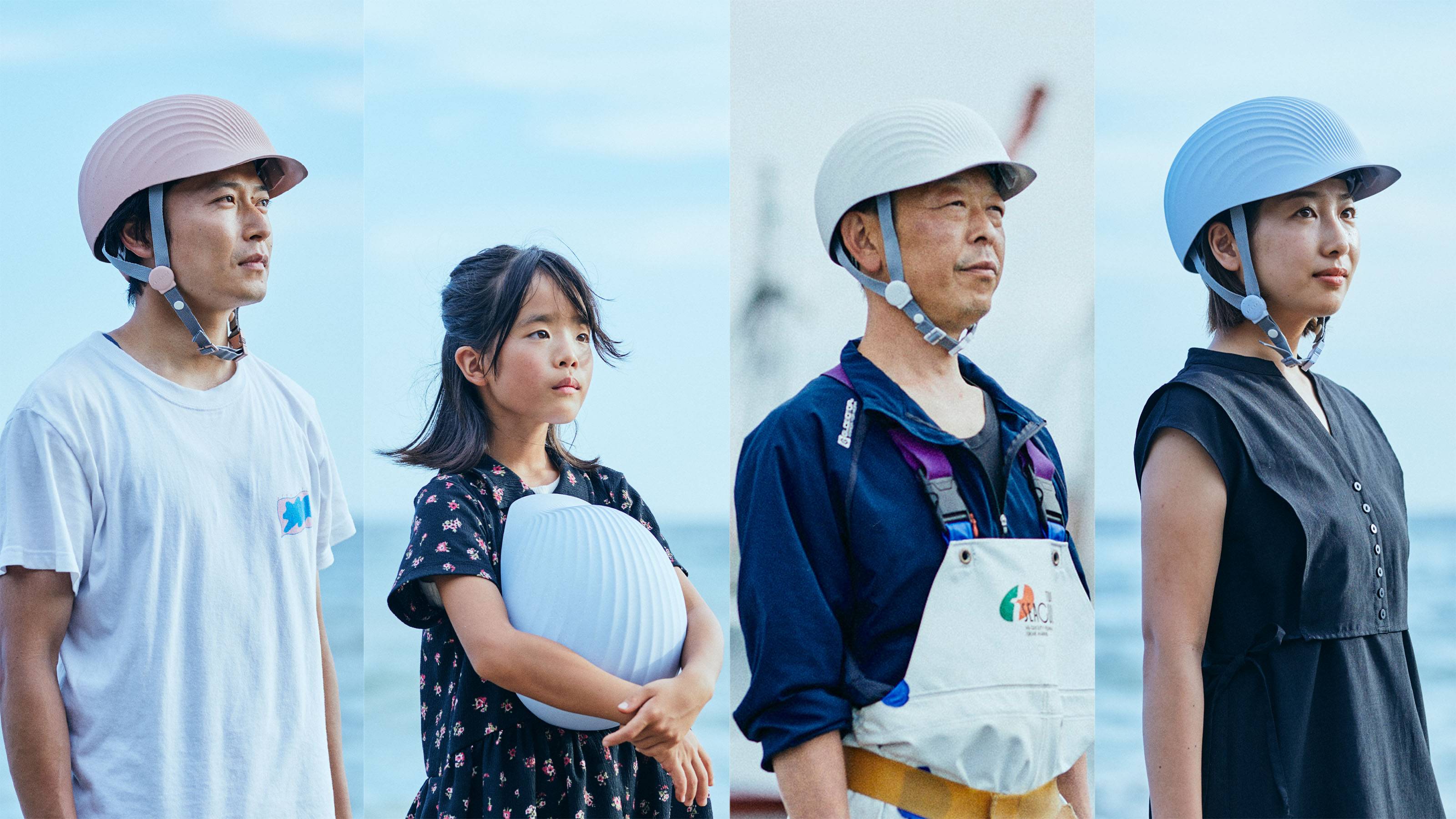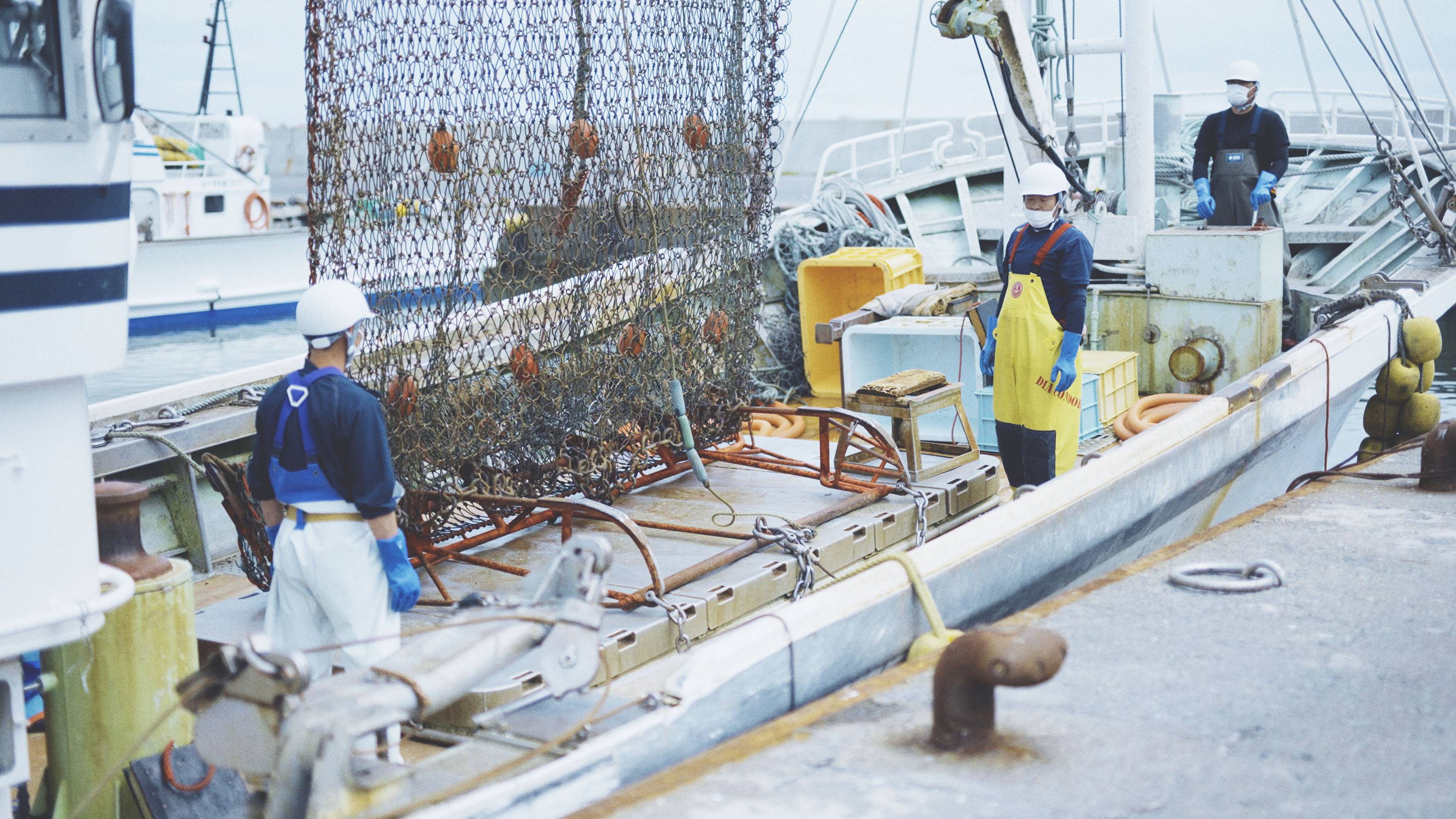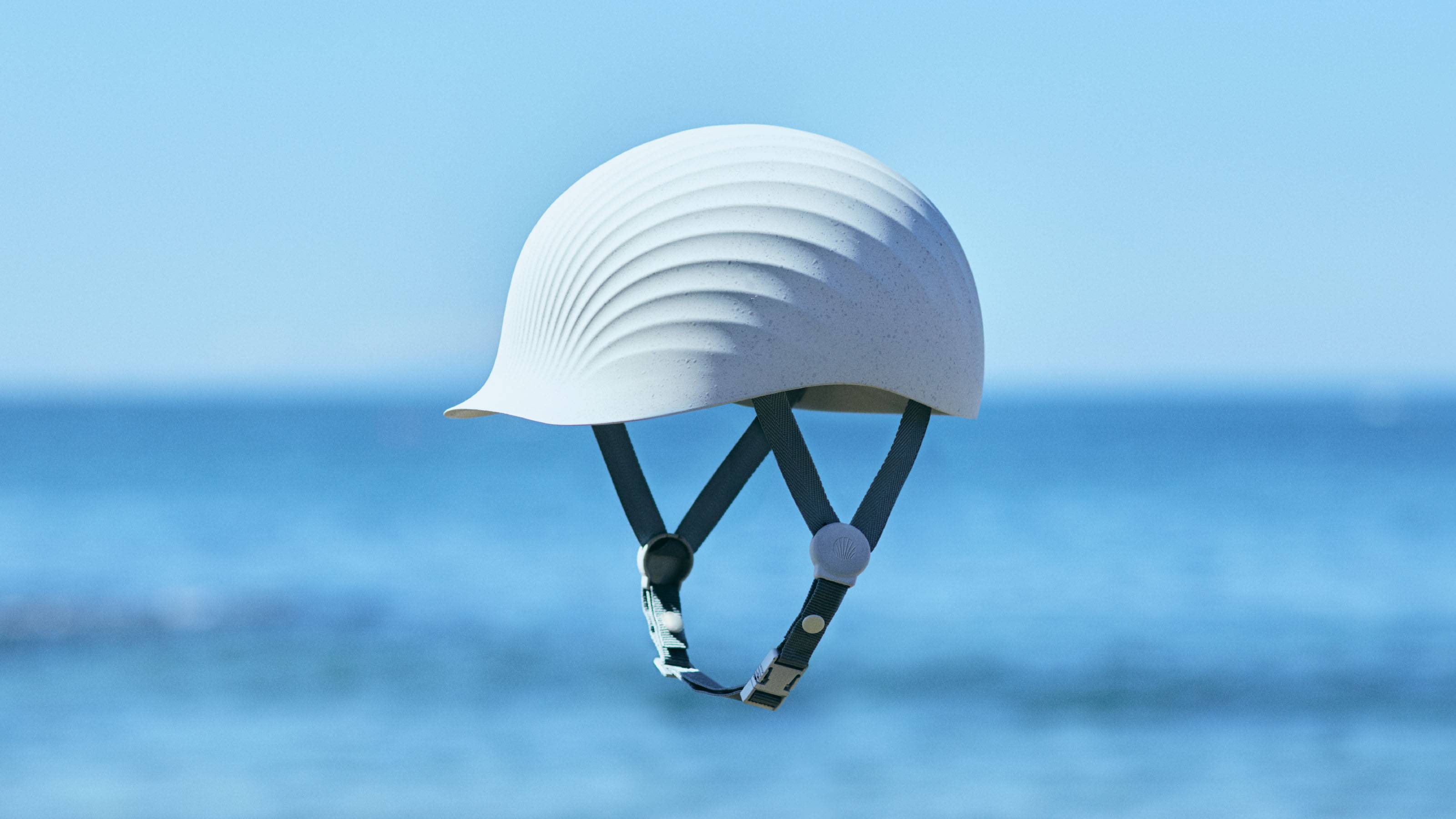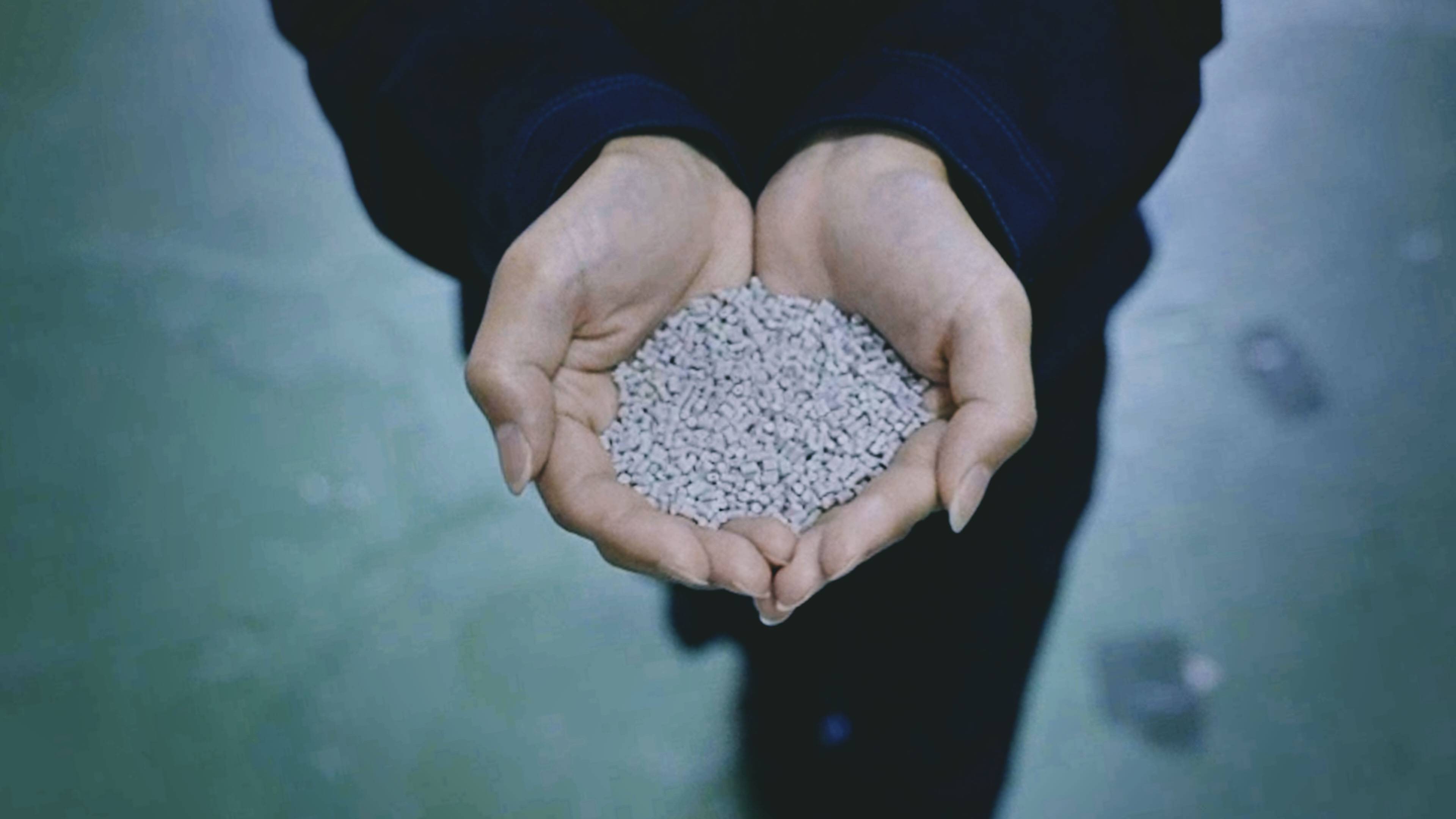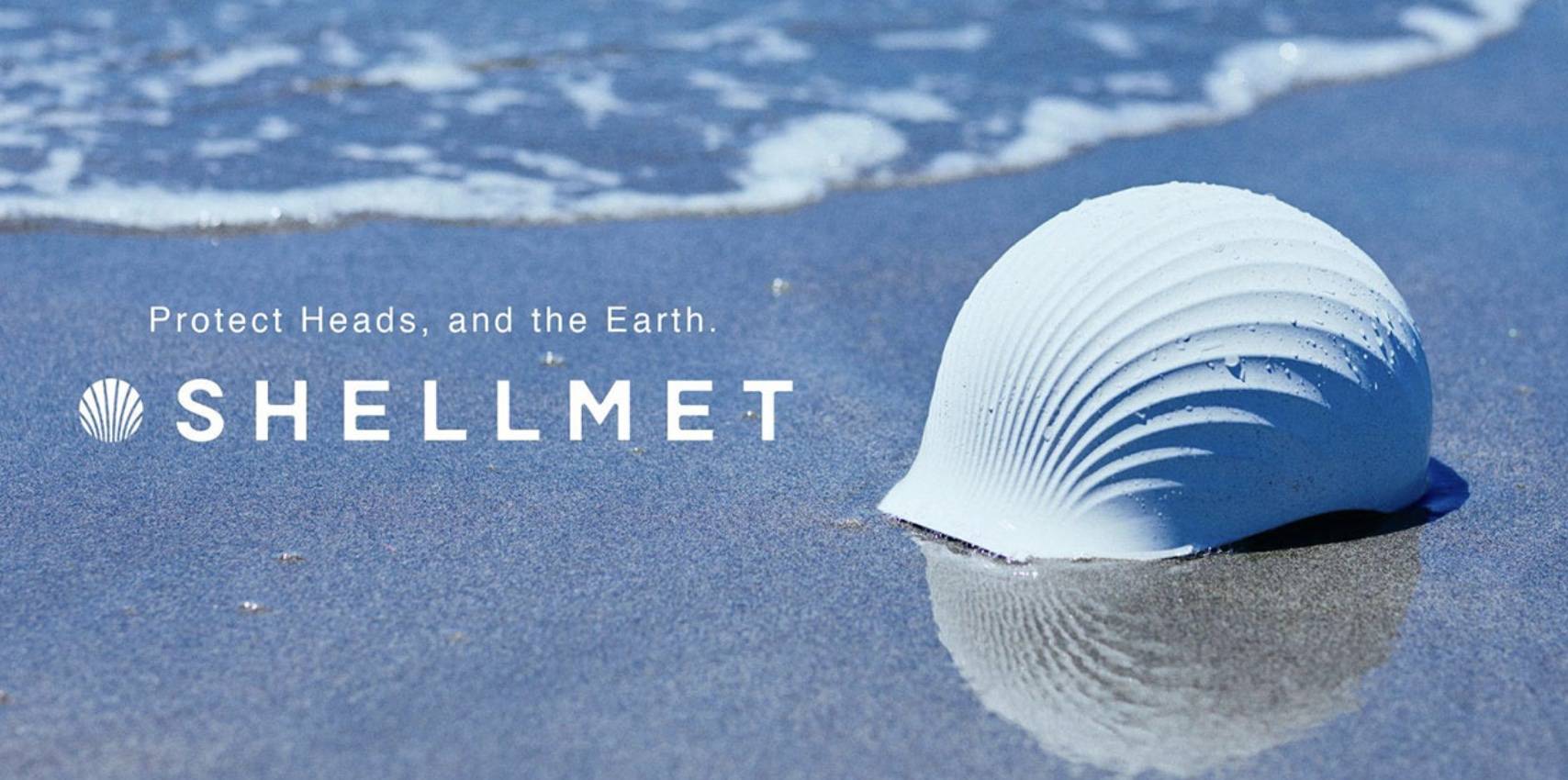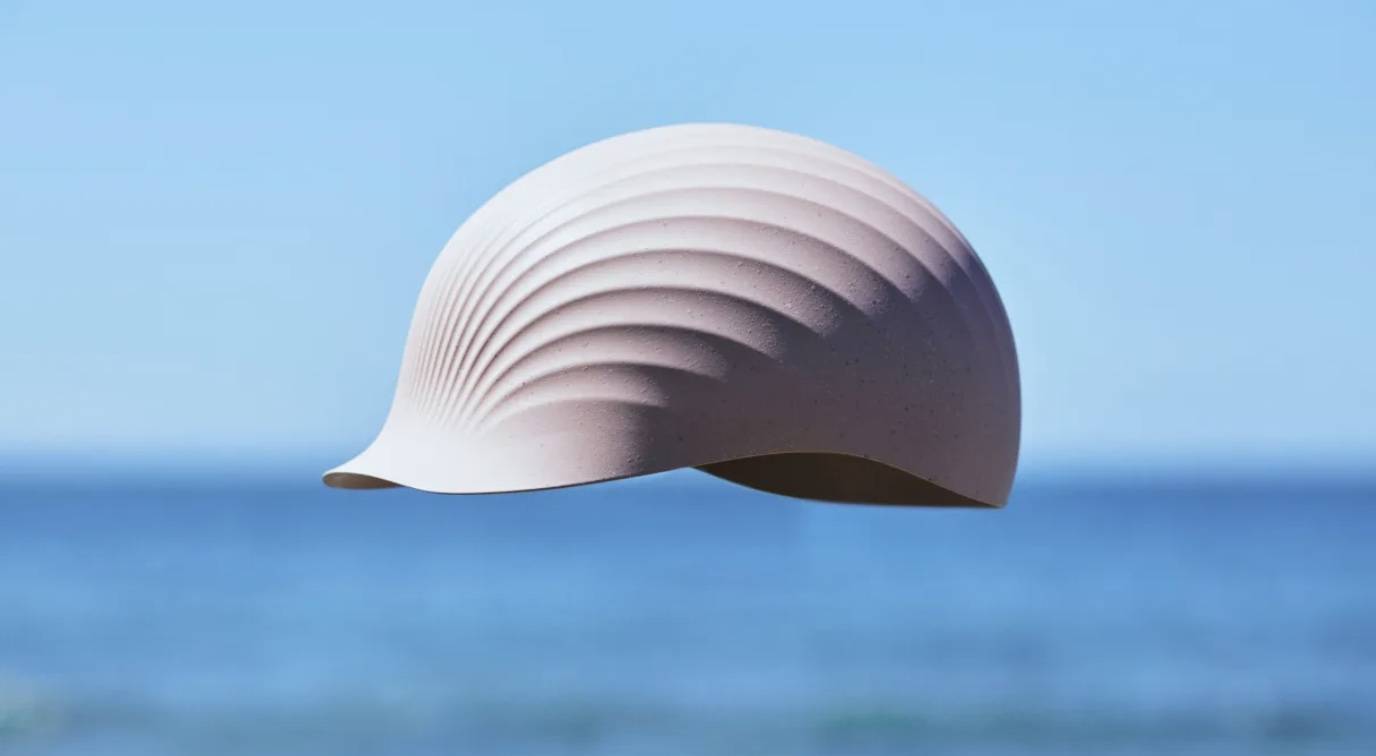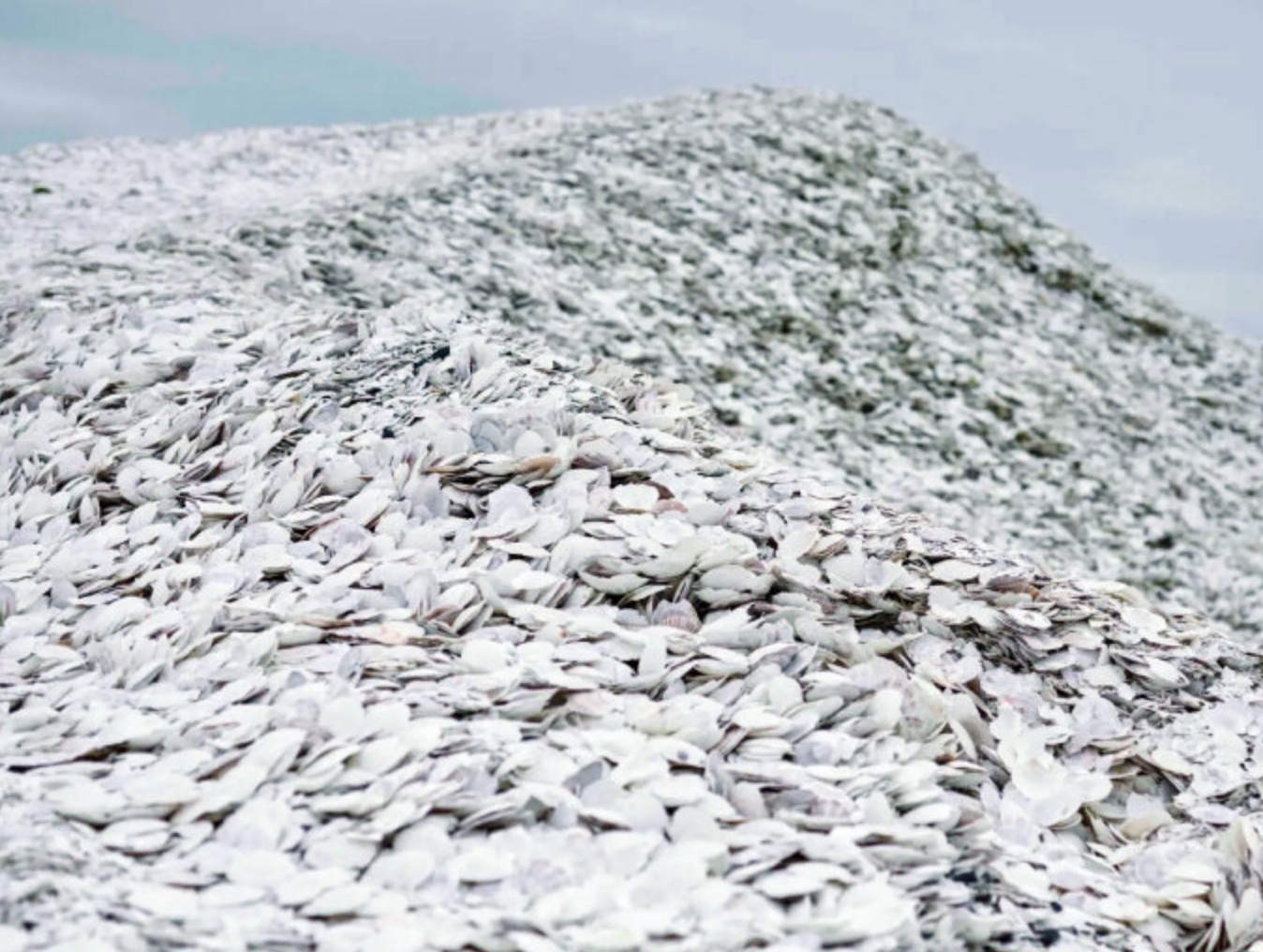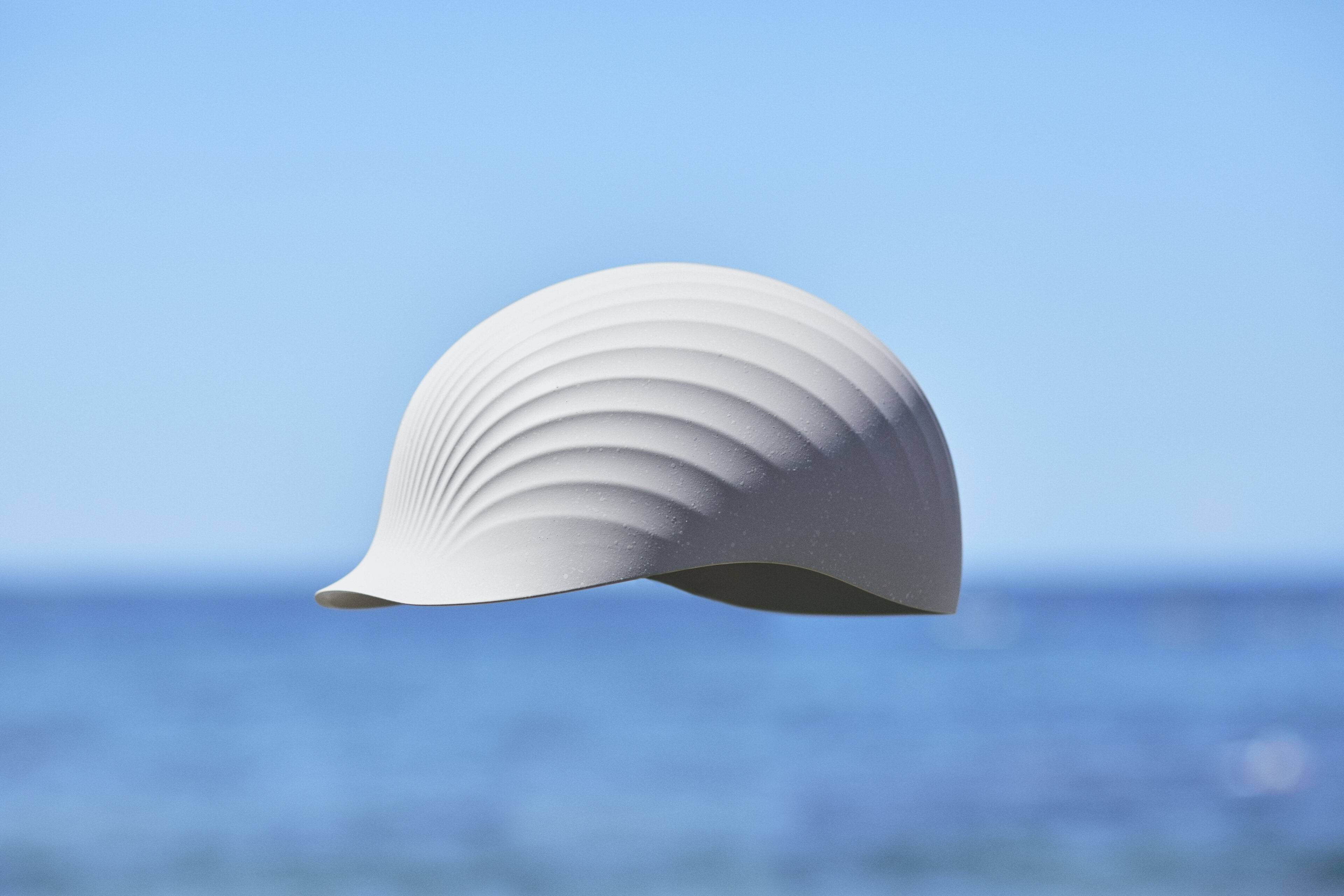
Shellmet
Koushi Chemical Industry
Overview
Based on the concept “nature-inspired innovation,” the Shellmet mimics a traditional hardhat, but is made out of 100% recycled materials from scallop shells.
The sustainable and innovative design was created to help reduce the excessive amounts of scallop shells left behind by seafood exporters each year, which puts the local beaches at risk for soil contamination.
The Challenge
Scallops are the most commonly eaten shellfish by Japanese people, making their shells the most discarded. Sarufutsu Village in Hokkaido boasts the largest scallop catch in Japan. In 2021 alone, seafood exporters left nearly 40,000 tons of shells behind. The massive amount of discarded shells could leave the beaches at risk for contamination, which would hurt the local community immensely.
The Solution
Scallop fishermen work at length at sea and risk falling due to instability underfoot and rough weather. Plus, due to the high risk of earthquakes and other disasters, helmets are a staple item for disaster preparedness, not only for fishermen, but for all sorts of people. What if we could create an eco-system whereby helmets worn by scallop fisherman are produced from the locally caught scallop shells?
The Shellmet is the sustainable solution for both the local beaches and fishermen. Made of 100% recycled materials from crushed discarded shells, this helmet reduces CO2 emissions by up to 36% compared to plastic and its unique ribbed structure adds 30% more strength than the traditional design.
The Results
Since its launch, SHELLMET has gained exposure in 735 media outlets in 34 countries with an estimated reach of 3.2 billion people. It has spread throughout Japan, not only among fishermen, but also cyclists, street sports, and builders. In the first two months, the company recorded 1,397% of its sales target. Already in the first year, more than 24 tons of discarded shells are expected to be recycled.
The innovation created from discarded shells was highly evaluated and adopted as the official disaster prevention helmet for the sustainability-themed 2025 Osaka Expo. It has also been exhibited overseas at the MAAT Museum in Portugal. As offers pour in from companies around the world, new projects are underway with more than 16 global brands, including Shell. SHELLMET has not only helped Sarufutsu Village with its environmental problem but has also become a new source of income.
